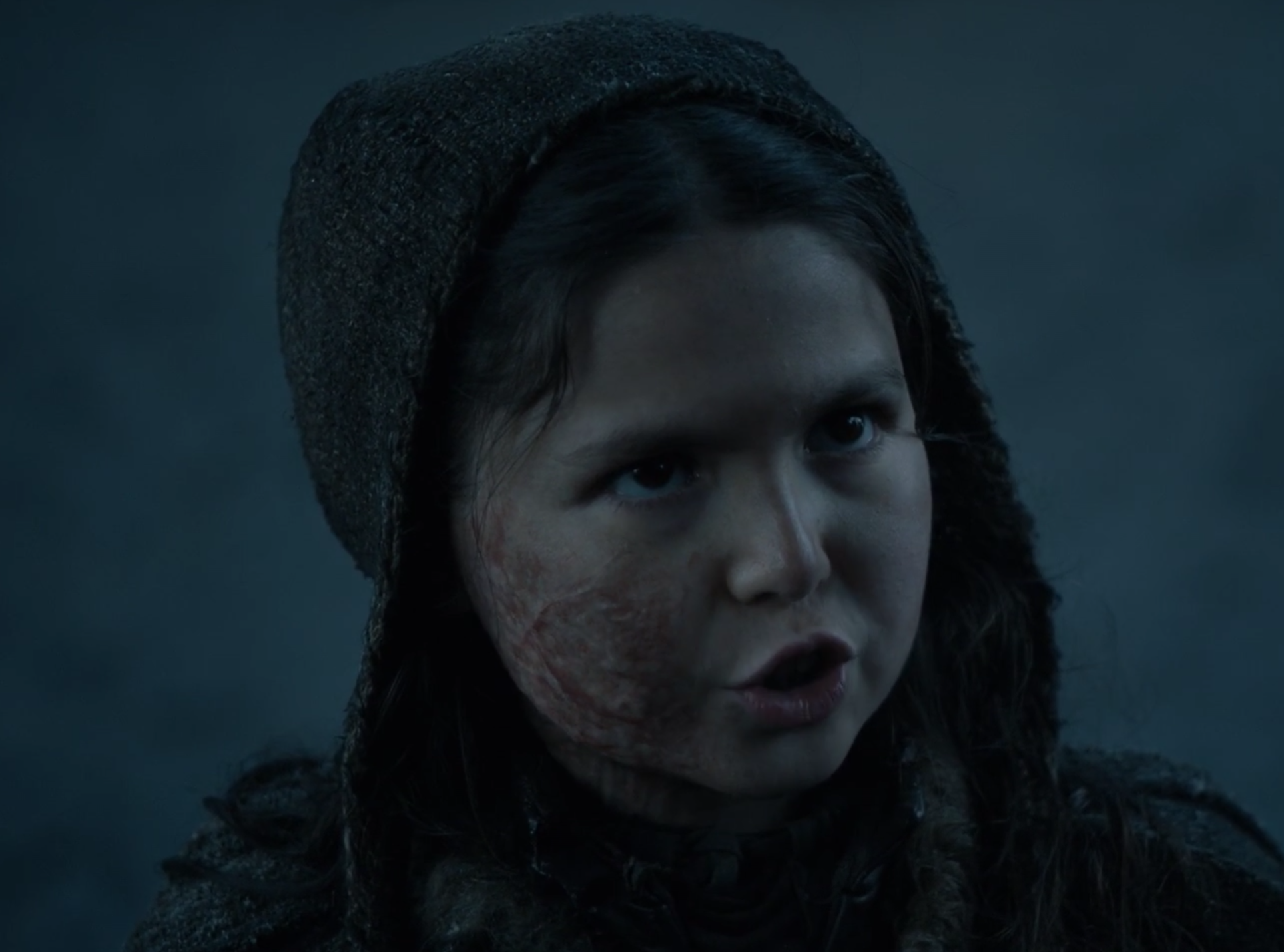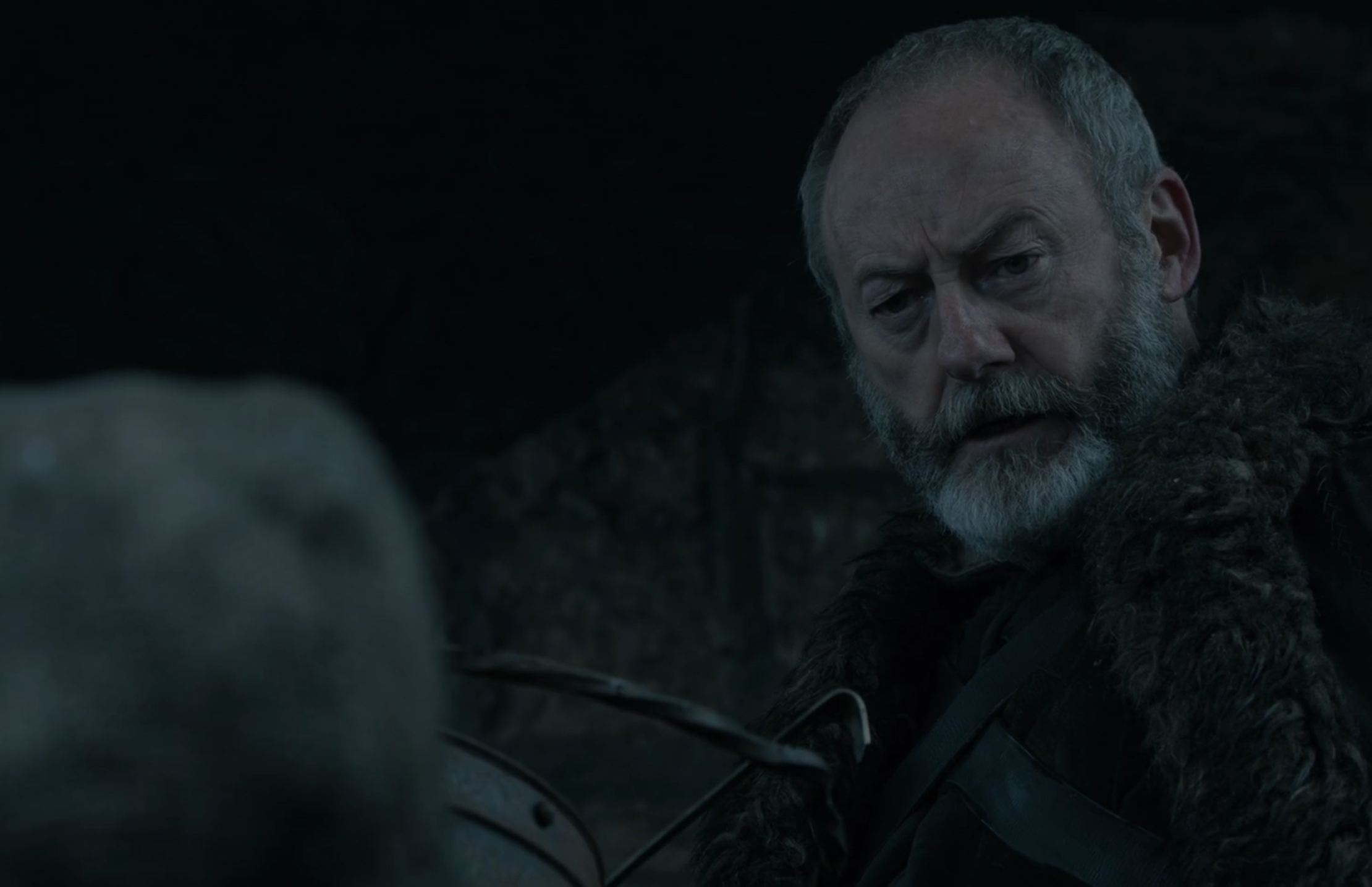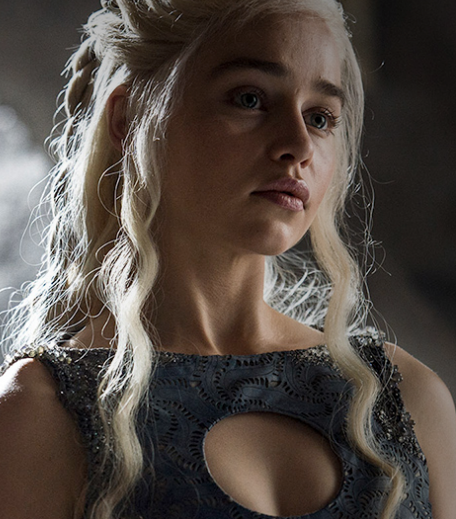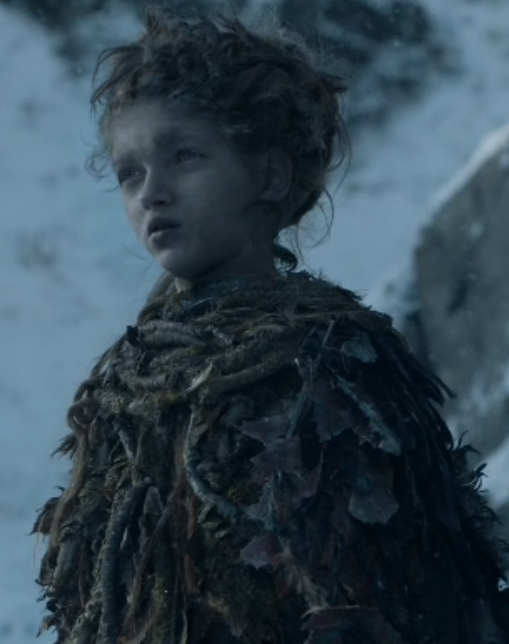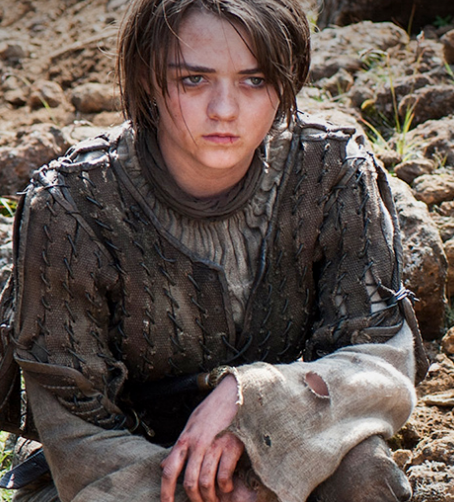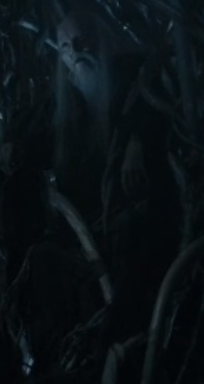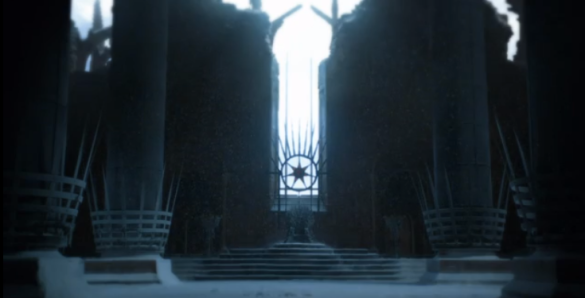DISCLAIMER: THERE ARE NO SPOILERS IN THIS ARTICLE. I HAVE NO KNOWLEDGE OF WHAT IS TO TRANSPIRE IN THIS STORY. ANY VIEWS OR CONTENT EXPRESSED ARE SOLELY PERSONAL THEORIES, OPINIONS AND INSIGHTS.
The end of an era. The dark before the dawn. A preamble to death. Call it what you’d like, but make no mistake, the end is here. Now.
The thing is, we always knew this moment was coming. It’s been clear for some time that the finality of this story was lurking around the corner, perhaps just out of sight. But knowing that the end is near in your head, truly feeling it in your heart, are two very different things. And tonight, for the very first time, we were forced to feel the weight of the end, and all the consequences that will come along with it. What was once out of sight, is now in crystal clear focus, and there is no turning back.
After a rather slow setup episode to kick off the season, many anticipated an action-packed episode this week. I myself suspected that we might get our first battle tonight. But what we were offered tonight was more profound — more emotional — than perhaps any battle scene ever could be. In a subtle, yet powerful way, we were reminded of all that has happened over the past 10 years — intense character journeys that saw foes become friends; great sacrifice and heart-wrenching loss; glorious victory and crushing defeat — all that has led us to this very final moment. And as we processed the great journey that led us here today, we were reminded of the great fragility that characterizes the world we live in — a reminder that overnight, everything can change; life can turn to death, while the things we hold most dear can be taken away in the blink of an eye.
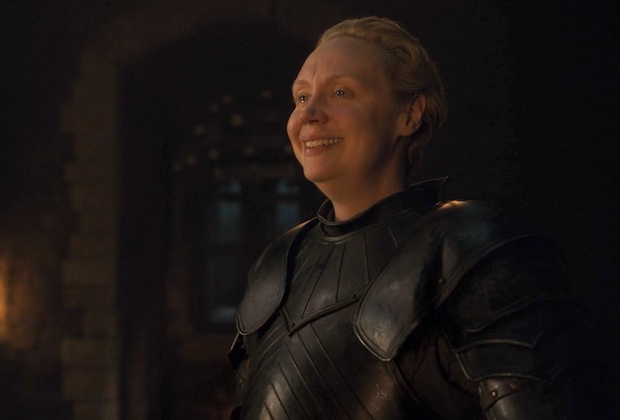
The great paradox, and genius of this episode, was that we were ultimately reminded of what we will soon forget. Like a montage of memories before our eyes, it will all soon be over, and most of it will soon be forgotten. The ingenuity of this concept is that it speaks true both externally, of us viewers, who likely will forget most of what we’ve witnessed over the past decade, once this great saga comes to an end and the years go by. But on a meta level, the same can be said true of the characters in the story. As the end approaches, so does the very real possibility of human extinction, which would bring about the end of all recollection and memory. And, as we learned from Bran in this episode, that is precisely what The Night King is after (we’ll get to that more later).
The last night of sleep-away camp where you stay up all night, knowing that morning will bring about the moment where you’re forced to say goodbye to those friends who you may not see again until the following summer. Those last moments leading up to college graduation before you close the chapter on your college days and embark upon that next phase of life. This was all of those goodbye moments rolled into one and amplified times 100. We were readied for what may be the final goodbye. Life is not guaranteed. Death is imminent. Loss is certain. And tomorrow may not come at all, which forces us to reflect back upon the most magical of journeys, which in concert, create what we have come to know as A Game of Thrones.
All You Need is Love
To date, character relationships have often been complicated and unpredictable, but as the end nears, all of that has begun to change. Staring down the face of death, what we saw in this episode was characters mostly stripped of all the layers that no longer matter. And when you peel back all those layers, we’re left with relationships that are defined by one simple constant: love. And it is the power of this love, combined with an awareness of how quickly this love can come to an end, that made this episode so sad, yet beautiful. Characters coming together, knowing full well that this might be their last sip of wine together; their last laugh; their last kiss. Their realization of the impending finality allowed us to view these characters stripped of what has defined their very existence in this story for so many years — the lies, the schemes, the deception, the games…None of that matters anymore, and we got to see the true essence of these wonderful characters.
This theme starts early in the episode when Jaime is reunited with Brienne, one of the few people in all of Westeros who got to hear his side of the story regarding his slaying of The Mad King. Their journey was intensely powerful, and it was Brienne’s character that served as the foil for Jaime’s first evolution. It was through her that we first saw a different side of Jaime — a more vulnerable character that had been carrying the burden of being unfairly labeled Kingslayer and Oathbreaker. Below is a clip from season three in which Jaime breaks down to Brienne and she learns who he really is. This scene is hugely important as it allowed Brienne to understand what Jaime had been through and the truth of his character — the very character she would come to the defense of all these years later in his moment of judgement.
As we heard Brienne recount in tonight’s episode, it was Jaime that saved her life, and lost his hand for it, back in season three. Years later, it is now Brienne saving Jaime. And if all that is not poetic enough, with death at Winterfell’s doorstep, it is Jaime who is able to give Brienne what she wants most in the world, her knighthood. Underscoring the importance of this moment, Thrones producers chose to name the episode after it, A Knight of the Seven Kingdoms. Whether it is a love of romance or a love of loyalty and admiration (likely the latter), the feelings displayed between Jaime and Brienne offer a shimmering light before the darkness that is just around the corner.
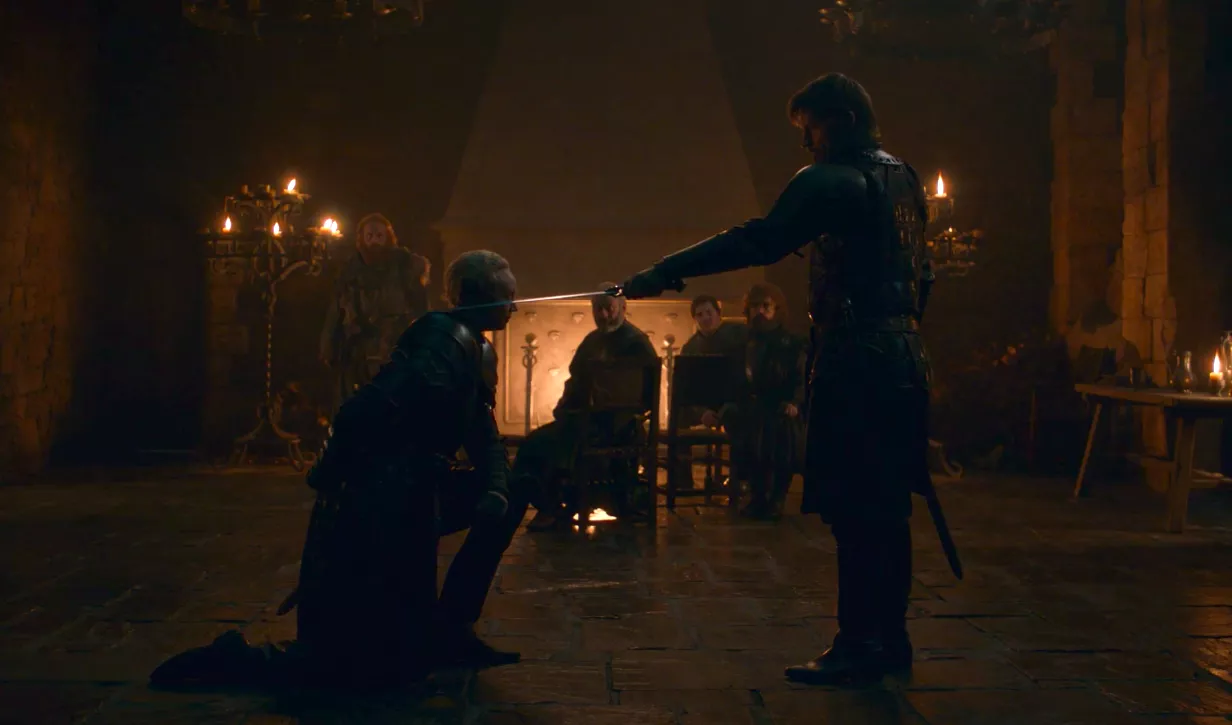
The moments of love continued between many other characters, again offering reminders of the richness and depth of experiences that have shaped these relationships in seasons past. The reunion between Theon and Sansa proved that even a short-lived exchange can be powerful and emotional, when delivered the right way (something the premiere episode seemed to be totally unaware of). Theon’s return to Winterfell only lasted about 30 seconds, but his pledge to fight for Sansa and Winterfell brought things full circle for him. His character has been tormented for years as to who he should try to be: a Greyjoy or a Stark. He has made some excruciating decisions along the way as he battled this identity crisis, but his return to Winterfell signals that he has found some closure and realizes who he ultimately wants to be in the final moments of this story.
But what made this scene even more emotional was the embrace shared between Sansa and Theon. Both characters have been through some unimaginable circumstances, and their experiences intersected at the hands of the sadistic Ramsay Bolton, who held both of them prisoners. At the end of season five, the two came together to escape Winterfell, a moment that liberated them both literally and figuratively. They went separate ways shortly thereafter, but they will forever share a powerful bond built upon a shared understanding of what it meant to endure Ramsay’s torturous ways, as well as knowing that they came together to escape. Their present-day reunion is a reminder of all that they had been through, and their embrace reminds us of the ways in which shared adversity can bring us closer together, perhaps more-so than anything else.
Lastly, this scene reminds us that perhaps Theon’s tale is ultimately about one thing above all else: redemption. Lost in the fray of hating so many others (i.e. Ramsay Bolton, Joffrey, Walder Frey, etc), you may not remember it, but there was a time when you hated Theon more than anybody in the entire Thrones universe. This was the guy that turned on the family that raised him as he brought destruction to House Stark and Winterfell. Some time thereafter, he was taken prisoner by Ramsay and turned from Theon into Reek, and became such a broken man that there was nothing left to hate. And then for some time following his escape, he vacillated back and forth, trying to figure out whether he was Reek, Greyjoy or Stark, and as viewers, it was unclear where his path would lead. But, after rescuing his sister Yara, and now returning to Winterfell to fight alongside House Stark, Sansa’s embrace reminds us that redemption is possible, almost always. Looking back, Theon’s character offered viewers an unbelievably complex and rich character journey. Given that he’s arguably not even one of the top-ten most important characters in the story, this is just another testament to the absolute genius of George R.R. Martin. In any other story, a character of such complexity would be the main star of the show — but in George R.R. Martin’s world, each character, no matter how prevalent or how peripheral, is exceptionally well-developed and never overlooked.
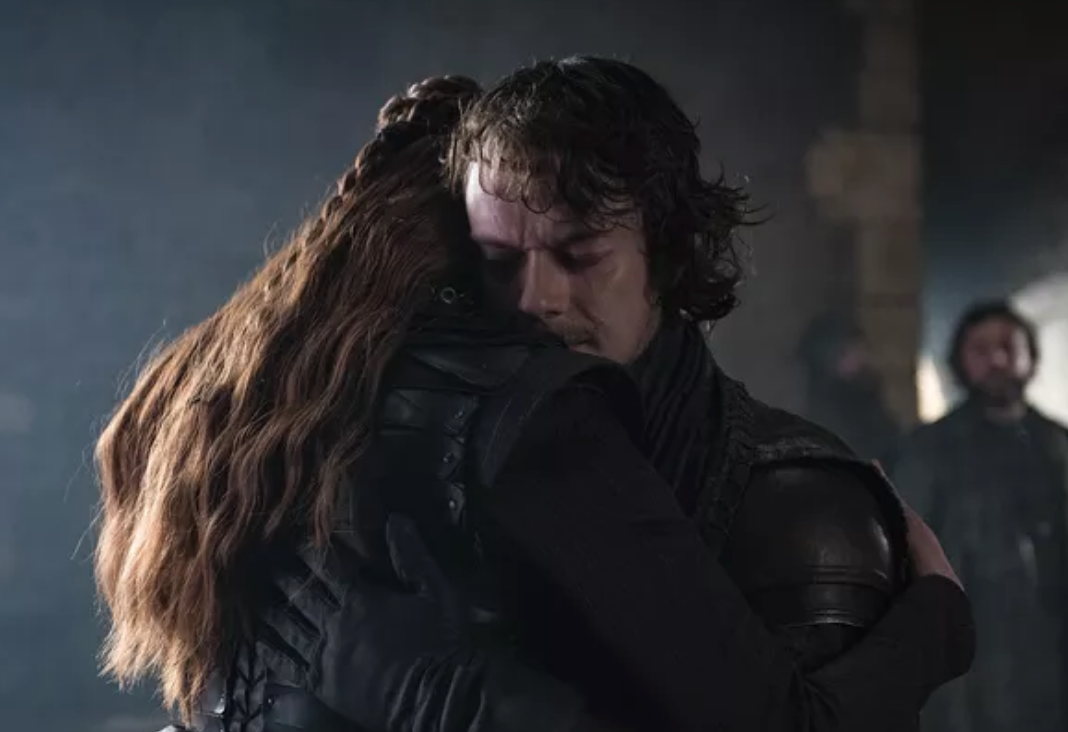
The theme of characters coming together in their final hour did not stop there. Arya made it clear that she’s all grown up and did not want to die a virgin, as she took control of Gendry. I guess one needle wasn’t enough for her. (For anybody who didn’t catch that one, the name of her sword is Needle). Before seducing him, he presented her with the weapon she’d been asking him to make — a fighting stick adorned with Dragonglass on either end. Again, even in a small detail such as the presentation of a singular weapon, we are reminded of the incredible journey that Arya has been on — one that will be altogether forgotten if darkness prevails.
Back in season six, Arya endured great sacrifice, including total loss of vision, as she trained to become a Faceless Man under Jaqen H’ghar in Braavos. This part of her journey, more-so than any other, ultimately shaped who she would become, so it is powerful to see that in what might be her final moments, she chooses to fight with a weapon similar to that which she trained with in Braavos. In this scene, we also heard that mysterious Braavosi music in the background, which once again begs the question: will we ever see Jaqen H’ghar again?
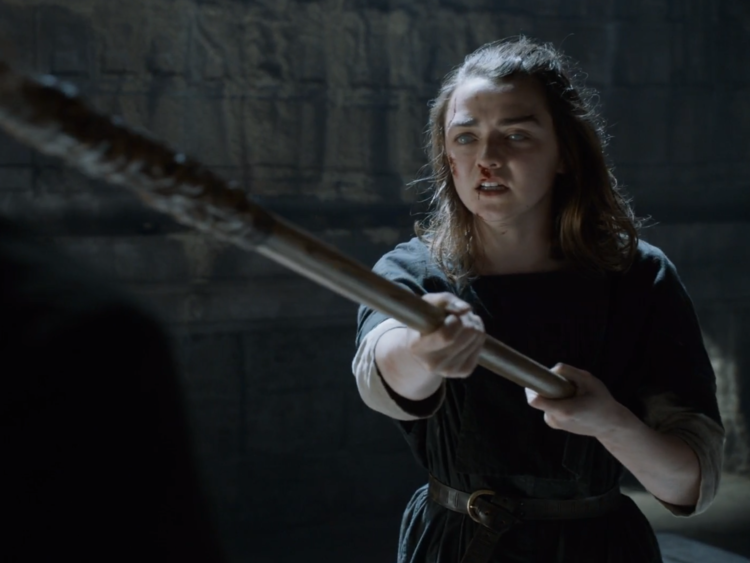
The unions continued throughout the episode, including one last kiss between Missandei and Greyworm. I must say, I am still puzzled by this part of the story. I never understood what the significance of their relationship is or what purpose it serves. Nonetheless, we are reminded that in the face of darkness, this might be the last kiss they ever share together. Same goes for Sam and Gilly as they are shown laying in bed with their baby boy between them, perhaps the last time they will ever be united as a family.
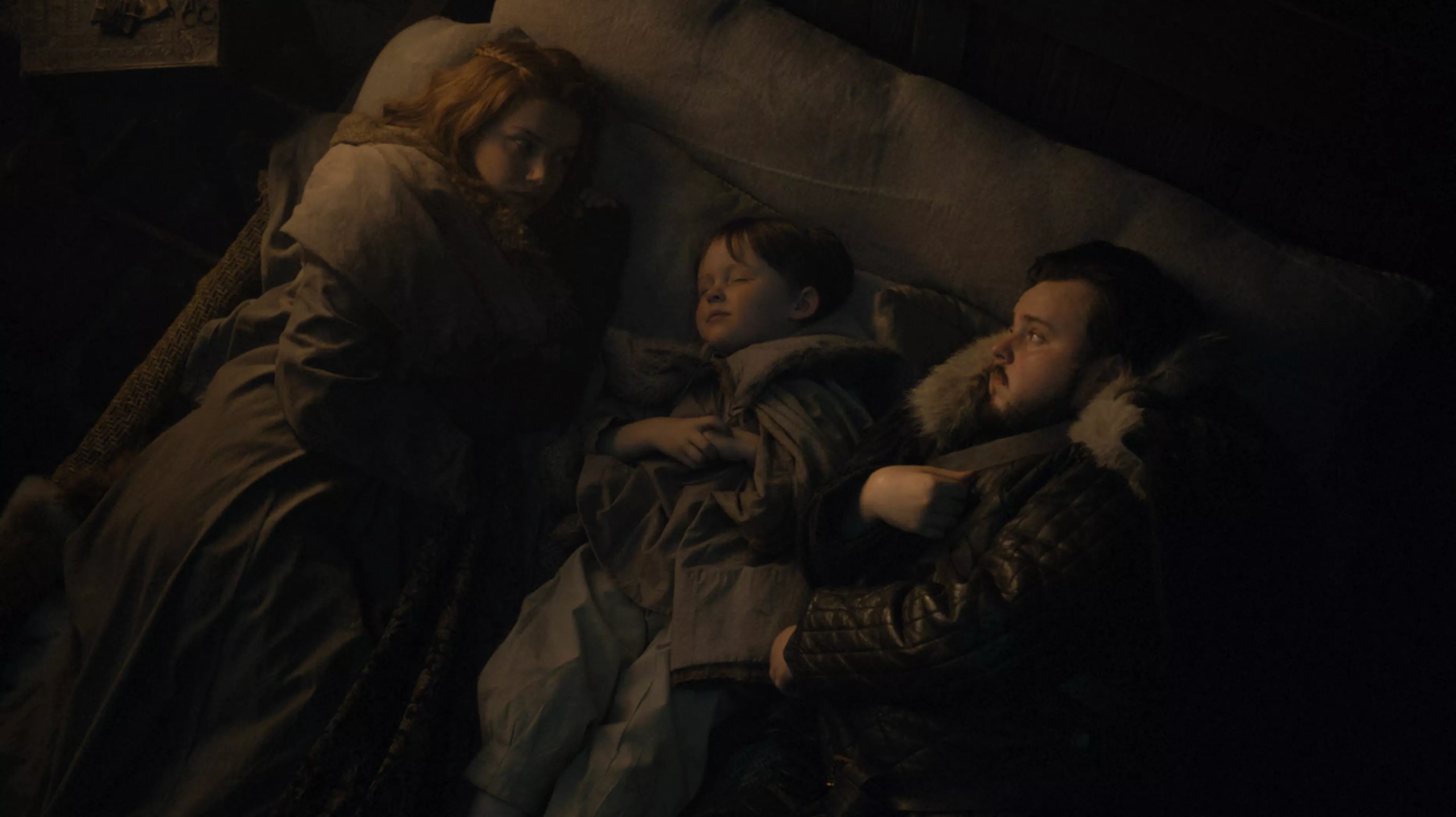
Finally, on the topic of this episode bringing characters together that remind us of the past, I’d like to point out one other scene that hardly anybody will talk about, but I found emotional: the scene between Ser Davos and the little girl in the square of Winterfell. For many seasons, Davos’ one true love was Princess Shireen, the daughter of Stannis Baratheon. Because she was afflicted with Greyscale, Stannis kept her contained to a cell beneath Dragonstone, where Davos would often sneak down; he would tell her stories while she would affectionately teach him to read. It was a loving and heart-warming relationship, which ultimately ended with her death at the hands of her own parents, who sacrificed her at the advice of Lady Melisandre. This was heartbreaking for Ser Davos, and ultimately led him to depart from the service of Stannis, and brought him to where he is today. Make no mistake about it, the girl in this last episode with the scar on her face was not randomly placed. The intent was to remind viewers of the love Davos had for Princess Shireen, a love that will fuel him to continue to fight for life against the army of the dead.
After a disappointing and underwhelming reunion last week, Arya and The Hound had another moment together, which did a slightly better job at recognizing the history they had together. Arya questions what The Hound is doing in Winterfell, asking him “When have you ever fought for anybody but yourself?” He looks back at her, and responds, “I fought for you, didn’t I?” In this simple dialogue, we are reminded of the great journey Arya and The Hound shared together, and that neither would be standing where they are today if not for that journey. After all that they’ve been through together, it’s painful to consider that we have witnessed their very last exchange. I could see The Hound making one final sacrifice, giving his life to save Arya in battle.
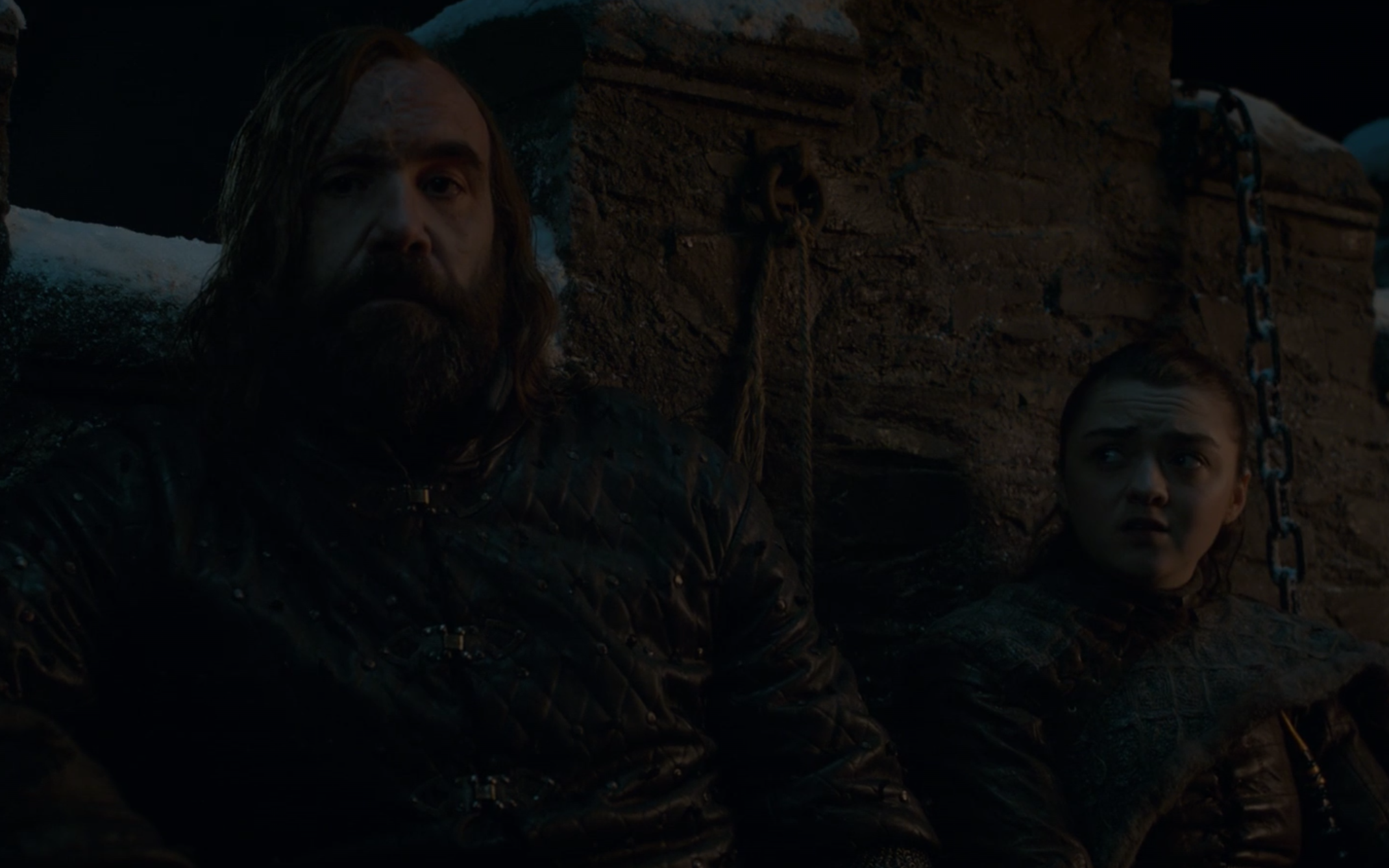
Last, but certainly not least, towards the end of the episode we see another wonderful reunion which reminds us of an important past that we cannot forget. Jon is reunited with what you could argue was his first true love — his brothers of the Night’s Watch. Standing beside his brothers, Sam says “Think back to where it all started,” before they repeat their words, probably for the last time, “And now our watch begins.” After having spent years defending The Wall and building a bond that most could never imagine, it is unlikely that these three will ever stand together again. What a sad thought.
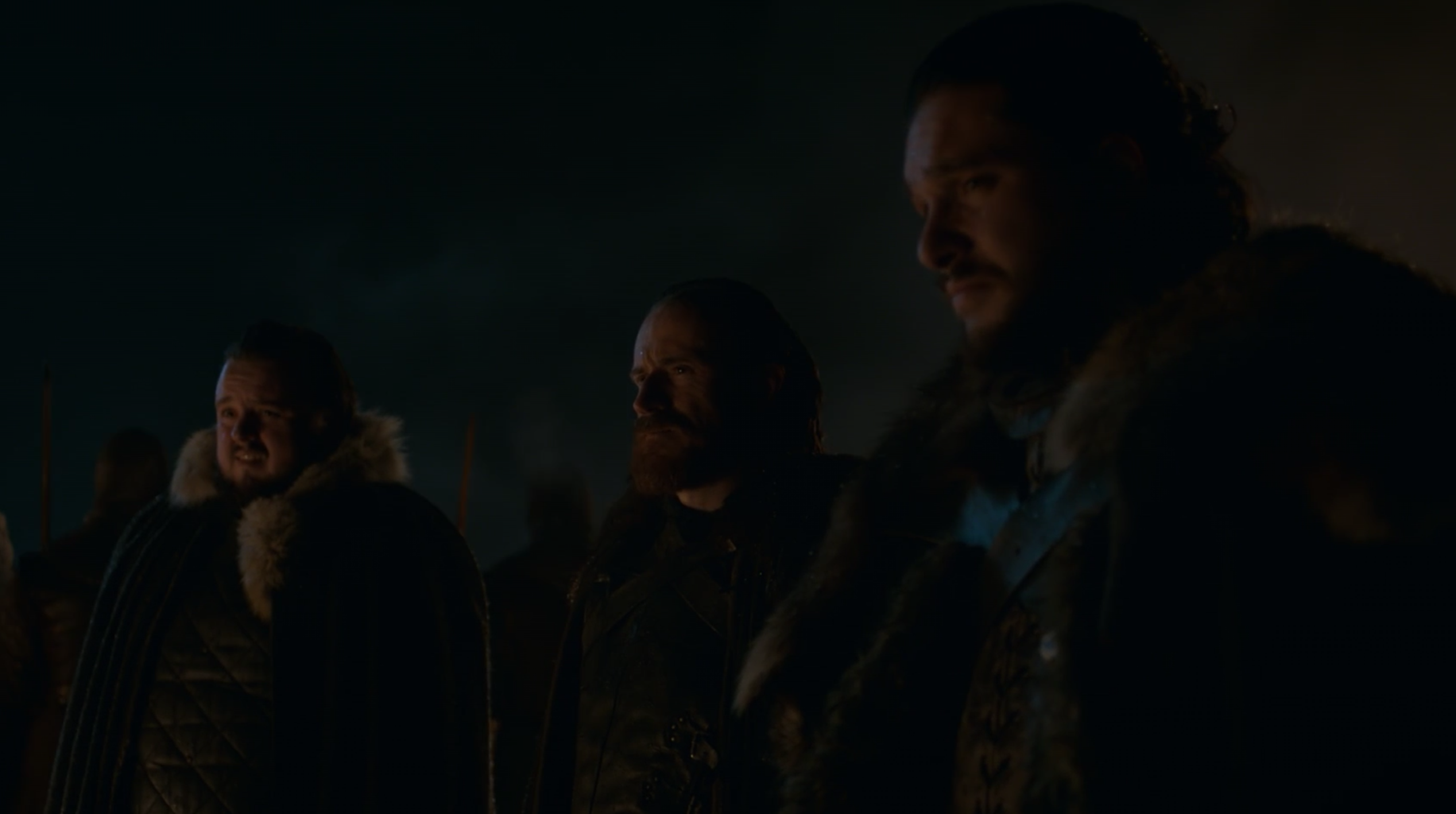
The King and I
If the planned Thrones spinoff proves unsuccessful, HBO could always pivot to a Thrones satire featuring The Night King and Bran, entitled The King and I. All joking aside, in this episode we got a bit more color on The Night King’s intentions as well as his connection to Bran.
For starters, Samwell flat out asked the question we’ve all been asking for quite some time now: what does The Night King want? Bran provided a fairly direct response: “He wants an endless night. He wants to erase this world, and I am its memory. He’ll come for me, he’s tried before many times with many Three-Eyed-Ravens.”
So while Bran provides some more color on what The Night King wants, I can’t say it was a real “ah-ha” moment. I still don’t quite understand what The Night King wants to achieve. Or better yet, maybe I just don’t understand why he wants to. Sure, he wants an endless night where the world is erased. But why? Say he wipes out humanity and gets his endless night, then what? I still believe, and really hope, that there’s more to the Night King’s true ambitions than what Bran has divulged. There has to be more to what he’s after and why he’s after it. I am hoping we’ll still have a big reveal of who The Night King really is, why The Children of the Forest created him, and what this eternal battle between Ice and Fire is really about.
What’s also interesting to think about is that Bran alluded to the fact that The Night King has tried “many times with many Three-Eyed-Ravens before.” How many Three-Eyed-Ravens have there been before Bran? And does this dispel the theory that Bran was the earlier Three-Eyed-Raven all along, essentially the future version of himself guiding the present-day version of himself? What has happened to the other Three-Eyed-Ravens, and what has their role been compared to Bran’s? No answers for you on these questions, but interesting to think about.
Another takeaway from this scene was that Bran was speaking to a room filled with all the key players in the story (Dany, Jon, Tyrion, Arya, Davos, etc). Of all these characters that could have responded to Bran’s declaration about what The Night King wants, it was Samwell who responded, stating “That’s what death is…Forgetting, being forgotten…If we forget where we’ve been and what we’ve done, we’re not men anymore, just animals. Your memories don’t come from books, your stories aren’t just stories. If i wanted to erase the world, I’d start with you.”
What’s interesting about this is that it ties back to an idea that we’ve spoken about in earlier posts — that perhaps Samwell will be the ultimate storyteller — perhaps the very person narrating the story we are being told today. This idea has never held more weight than after this episode, in which Bran declares that The Night King’s entire mission is to erase the world and its memory. If that is the case, than the Night King’s ultimate opposition would be the storyteller who possesses the power to perpetuate the story of humanity. As we know, there is nobody that has embraced the power of books, story and recorded history more-so than Samwell Tarly. You can read a more detailed account about that theory here, but I found it very telling that Samwell was the one to respond to Bran in this scene.
After learning that The Night King will come after Bran, team humanity decides their best play is to set him out in the weirwood forest as bait in an attempt to lure in The Night King. Theon offers to protect Bran, though alone, he’ll be no match for The Night King. This raises the ultimate question: how do you kill The Night King? It’s unclear whether Valyrian steel, Dragonglass or even dragon fire will work.
The Crypts of Winterfell
The crypts of Winterfell were mentioned no less than a dozen times in this episode. And each time, they were mentioned as the “safest” place to be. I get the sneaking suspicion that perhaps they are not as safe as everybody assumes. Or that there will be a major reveal about the crypts in the coming episode(s).
After Thrones producers chose for the location of the season eight teaser to be the the crypts of Winterfell, I dedicated a post to a theory about these crypts and their very mysterious history. Given how much these crypts were mentioned in tonight’s episode, I would highly recommend reading that theory here.
Discord in Winterfell
As the story nears its end, everybody in Winterfell seems to be on the same page. Well, almost everybody. Sansa and Dany have a heart-to-heart and it seems as though they are going to emerge the better for it, until Sansa asks the difficult question: what are Dany’s intentions if the war against death is won? Dany makes it clear that she intends to reclaim the Iron Throne, and Sansa makes it clear that The North does not intend to bend the knee again. With just four episodes to go, it seems unlikely that we ever see this conflict play itself out, but what’s important to note is that the very fact this conflict is lurking in the distance could cause enough discord between these characters as to affect their much-needed union today.
Making matters even more confusing, Jon reveals to Dany his true identity, and she quickly realizes that if true, he would be heir to the Iron Throne, not her. Her first reaction was one of disbelief, but she told Sansa just moments before that she knows Jon is a man of his word, so it will be difficult for her to deny the truth of his identity. The question is, will she be able to accept it. Unfortunately, this is not something she’ll have much time to ponder, as their conversation gets interrupted by the war horns that signal the army of the dead have arrived and the battle is just moments away. Without time to further discuss, how will this impact Dany’s loyalty to Jon, House Stark and her prioritization of this battle versus the battle for the Iron Throne? In short order, we will see Dany’s true colors, and while it feels unlikely, it is possible that she could turn on Jon if she now views him as a threat to the Iron Throne.
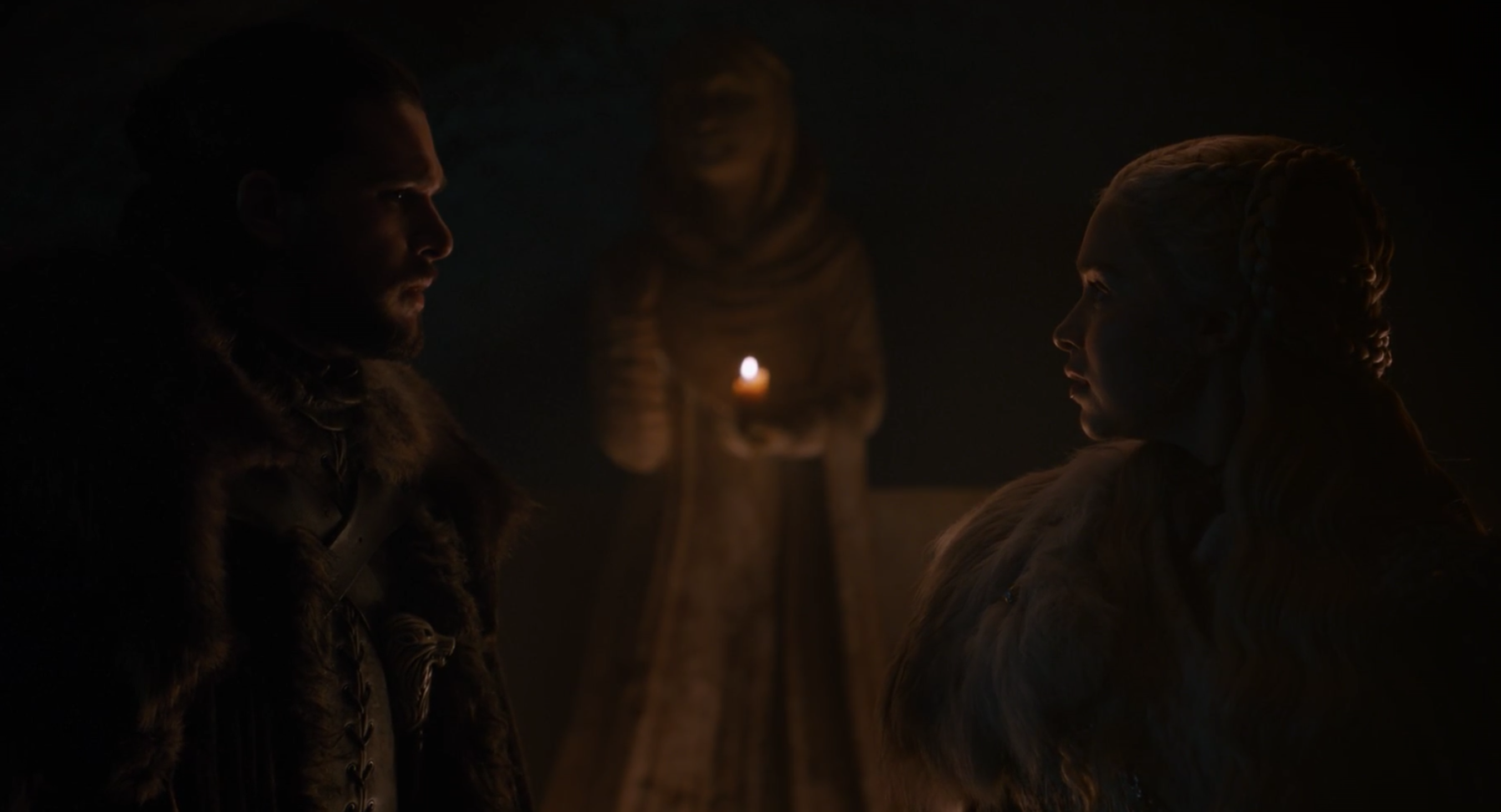
And just like that, The Great War is here. As the episode comes to an end, we see the front line of The Night King’s army, and he’s not messing around with any wights out there. His front line is comprised of all White Walkers, many more of them together than we have ever seen. Expect next week’s episode, all 82 minutes of it, to be edge-of-your-seat battle action. A word of advice: prepare yourself mentally and emotionally, because many great characters will die.

Odds and Ends
- With The Great War upon us, will The Prince That Was Promised finally emerge to lead the war against death and darkness as the prophecy states? If so, who will it be? If you aren’t familiar with the theory of The Prince That Was Promised, read here. Lady Melisandre originally, and incorrectly, believed Stannis to be The Prince, while the popular theory then became Jon, and more recently Dany. With Jaime back in Winterfell and Bran alluding to the role he has to play in The Great War to Come, Jaime could in fact emerge as The Prince That Was Promised. And with Brienne’s recent knighthood, it could even be her.
- If you didn’t catch it, Jon’s wolf, Ghost, is back. This begs the question of whether or not we’ll see Arya’s wolf, Nymeria. I say yes.
- In the scene between Jaime and Bran under the weirwood tree, Jaime asks Bran what will happen afterwards, to which Bran responds “How do you know there is an afterwards?” An ominous response to say the least, which highlights the very real possibility that darkness does in fact prevail.
- Samwell gave Jorah Heartsbane, a great Valyrian sword that has been in House Tarly for centuries. Jorah would have been in line to receive Longclaw, the great Valyrian longsword that belonged to his father, Lord Commander Jeor Mormont, but because of Jorah’s exile, the sword instead went to Jon. We know that Jorah was one of Westeros’ greatest warriors, and now he has an epic sword with which he can slay some White Walkers.
- Where was Varys in this episode? We know he was in Winterfell, but it was peculiar that he was not involved in any of the key scenes or dialogues. Keep an eye on this. And remember that we still do not know what he heard in the fire all those years back.
- Which major characters that have been killed off will we see reemerge as wights in The Night King’s army? I think it’s safe to say we’ll have to see at least one or two characters that have been turned into zombies. Stannis would make a pretty wicked wight.
